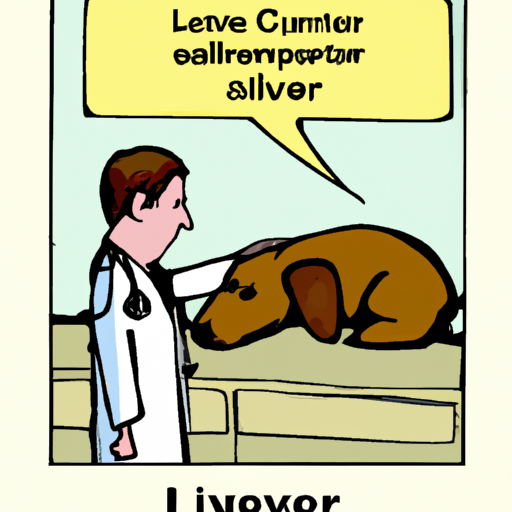1. Understanding Canine Liver Cancer
As a caregiver, it’s important for you to understand the basics of liver cancer in dogs. The liver, a vital organ, is responsible for many functions including removal of toxins from the body. When cancer strikes, it can disrupt these important functions. Liver cancer can be primary (originating in the liver) or secondary (spread from another part of the body). The most common types are hepatocellular carcinoma, bile duct carcinoma, and hepatic lymphoma.
2. Symptoms of Liver Cancer in Dogs
Here are some signs you might notice in your dog if they’re suffering from liver cancer. Remember, these symptoms can also be associated with other medical conditions, so it’s essential to get a proper diagnosis from a vet.
– Loss of appetite
– Weight loss
– Lethargy
– Jaundice (yellowing of the skin, gums, and eyes)
– Abdominal swelling
3. The Progression of Liver Cancer
As the disease progresses, the dog’s condition may deteriorate rapidly. The liver’s inability to detoxify the blood can lead to a build-up of toxins, causing further complications. Here is a rough timeline of what to expect:
1. Early stage: Minor symptoms like loss of appetite and lethargy.
2. Mid-stage: More severe symptoms such as jaundice and weight loss.
3. Late stage: Severe symptoms like abdominal swelling due to fluid accumulation and neurological signs due to toxin build-up.
4. How Liver Cancer Affects a Dog’s Life
Liver cancer can significantly impact your dog’s quality of life. As the disease progresses, they may experience pain, discomfort, and a significant decline in their day-to-day activities. Here’s a comparative table to illustrate this:
| Stage | Activity Level | Pain Level | Life Quality |
|---|---|---|---|
| Early | Mildly reduced | Minimal to none | Mostly good |
| Mid | Moderately reduced | Moderate | Fair to poor |
| Late | Severely reduced | High | Very poor |
5. Euthanasia: A Consideration
As a caregiver, the well-being of your pet is your utmost priority. When pain and suffering become too severe, you may need to consider euthanasia. This decision is never easy, but it is sometimes the most compassionate choice. Discuss with your vet about when it might be the right time.
FAQ Section
Q1: What is the life expectancy of a dog with liver cancer?
A: It varies greatly depending on the type and stage of cancer, as well as the dog’s overall health. Some dogs may live for several months to a year, while others may only have a few weeks.
Q2: Can liver cancer in dogs be cured?
A: While some cases can be managed with surgery or chemotherapy, it is often difficult to completely cure liver cancer in dogs.
Q3: Is liver cancer painful for dogs?
A: Yes, especially in the late stages, dogs can experience significant discomfort and pain.
Q4: How can I support my dog through this process?
A: Provide your dog with a comfortable environment, a balanced diet, and plenty of love and care. Pain management and supportive therapies can also help improve their quality of life.



